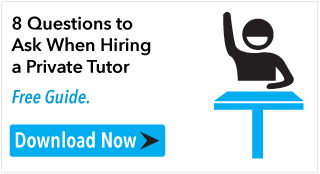The verbal section of the SAT exam includes a section on critical reading. Reading “critically” means reading without simply accepting the text as fact. When you read a...
An Overview of the ACT Reading Test
 The ACT Reading test requires you to read four short passages and answer ten multiple choice questions about each one. The time limit for this section of the ACT is 35 minutes, a little over a question a minute. Of course the 35 minutes includes the time required to read the passages, so in practice you'll need to answer around 2 questions a minute, depending on how fast you read and how thoroughly you understand the passage.
The ACT Reading test requires you to read four short passages and answer ten multiple choice questions about each one. The time limit for this section of the ACT is 35 minutes, a little over a question a minute. Of course the 35 minutes includes the time required to read the passages, so in practice you'll need to answer around 2 questions a minute, depending on how fast you read and how thoroughly you understand the passage.
Obviously, time management is of the essence. While you do not have time to dawdle, do not rush through the reading. You'll waste time re-reading the passage searching for the answers. Do lots of practice tests and be sure to time yourself. If you give yourself four minutes to read each passage, you'll be left with 19 minutes to answer questions. Perhaps you'll find while doing your practice tests that you're better off allocating 3 minutes to read each passage, leaving you with more time to answer questions. Figure out what the best time management strategy is for you, and stick to it.
Bear in mind that cell phones must be turned off during the exam, so make sure you have a watch or other permitted timing device for the day of the test.
Since no points are subtracted for incorrect answers, you must put down an answer to every question, even if you're only guessing. Make sure you leave yourself a minute or so at the end to guess at all the answers you were unable to fill in earlier.
The test is intended to evaluate your ability to understand texts in various fields: prose fiction, social sciences, humanities, and natural sciences. The passages are always arranged in the order listed. If you have a strong preference for one of these topics over the others, begin with that one. Try to pick up the easy points first, leaving for the end any question that you cannot answer within the time you have allotted for it.
The reading section of the ACT is not intended to be a vocabulary test per se; however, it does attempt to test your ability to understand vocabulary “in context,” meaning that you should be able to figure out the meaning of the words based on how they are used. Obviously, the larger your functional vocabulary, the less thinking you will have to do to figure out the meanings of words from their context.
The best thing you can do to improve your vocabulary and general reading comprehension ability is read a lot. Unfortunately, not all reading materials are created equal. You're best off reading classic prose fiction, which is most likely to use unfamiliar vocabulary and style correctly. The da Vinci Code, unfortunately, doesn't qualify. Try Mark Twain or John Steinbeck. If you're looking for something more modern, perhaps you'll like Chinua Achebe, Kazuo Ishiguro, Joseph Heller or Tom Sharpe. The New Yorker magazine is another excellent source of interesting and well-written articles that are easier to digest that whole novels. The important thing is that you enjoy your reading – as long as you do, you will want to read more and will absorb more of what you read.
Mo is an experienced SAT, ACT, and GRE tutor in Chicago who also tutors a wide variety of college level math and science course. He completed his BS in chemical engineering at Berkeley and his MS and PhD at Northwestern University, after which he worked in mathematical research at a trading firm. He scored 1560 on the SAT and a 1580 on the GRE (both out of 1600 – 99th percentile test scores).

